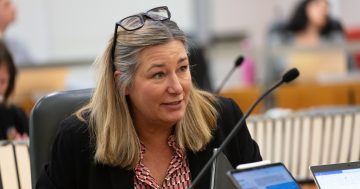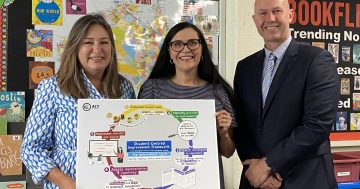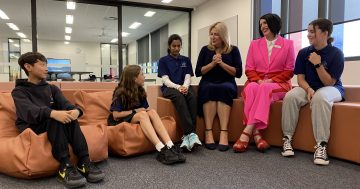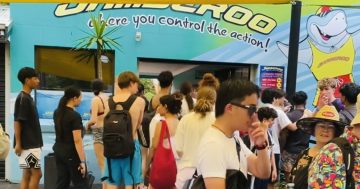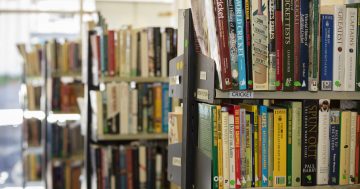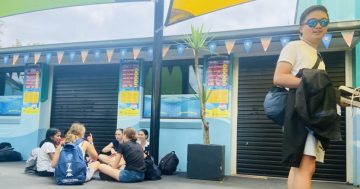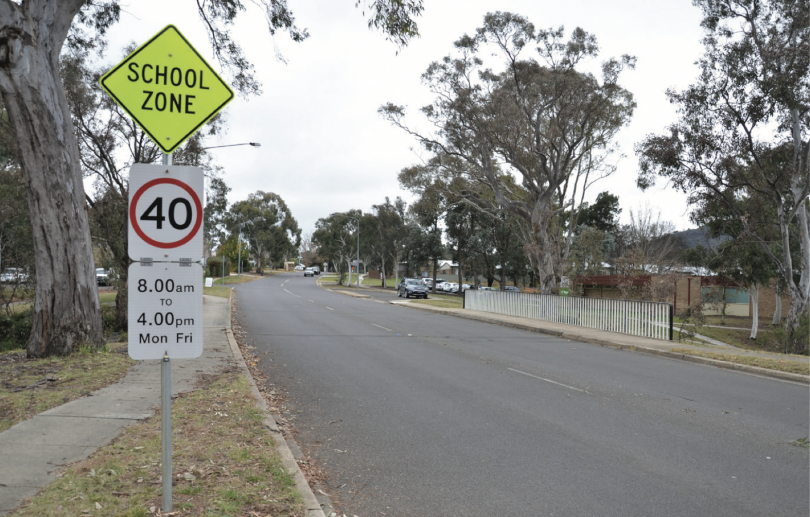
School zones are back in force. Photo: TCCS.
Parents – if not students – across the Territory will be rejoicing as the phased return to school begins to gather steam, and home learning can be waved goodbye for good (fingers crossed).
School life won’t entirely be back to normal, however, with COVID-safe protocols and guidelines in place to keep teachers, kids, and the wider community safe.
Here’s what you need to know about what the rest of this term will look like.
When are my kids back?
Year 11 and 12 students gradually returned to on-campus learning from Monday, 18 October.
Today (25 October), early childhood centres re-opened, and pre-school to year two and years six, nine, and 10 went back to the classroom.
From next week, Monday, 1 November, years three, five, seven, and eight will return to on-campus learning.
Normal school transport services also resumed today.
Can my children attend their usual out-of-school hours programs?
Yes. When a student’s year group returns to school, they can also attend these.
Do teachers and students have to wear masks?
Not all of them.
All staff, visitors, and students from years seven to 12 have to wear a mask.
Students in years three to six are encouraged to wear a mask if they are comfortable doing so, but any younger kids are asked not to as they are more likely to be worn incorrectly and could present a choking hazard.
Masks can be taken off when eating or drinking, communicating with a person who is hard of hearing, when exercising vigorously, outside alone, or in an emergency.
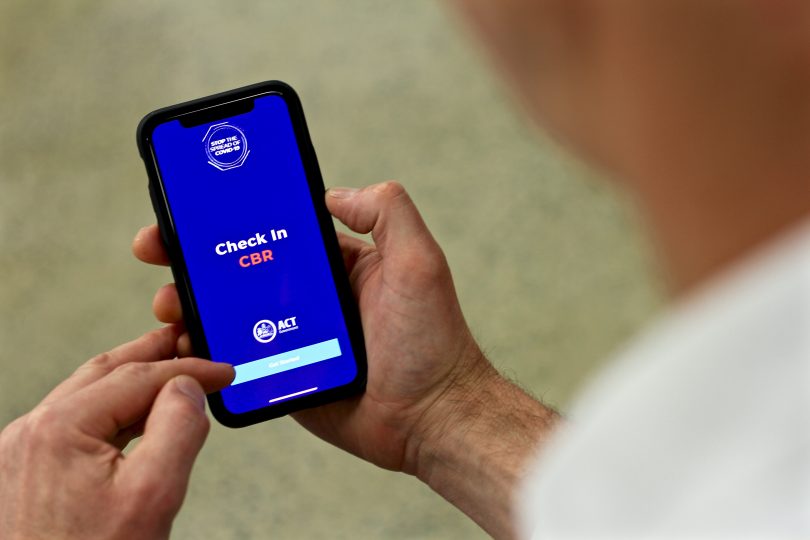
The Check In CBR app will be used by staff and visitors at schools. Photo: Michelle Kroll.
Who has to use the Check In CBR app?
Staff and visitors must check-in using the app. Parents and carers are not permitted to enter school grounds unless for an identified essential reason.
Can my child stay at home if I’m not comfortable with them returning to school?
Not really. Health authorities have sought to assure the community that schools are safe places and necessary precautions are in place.
The Education Directorate advises that students with a medical vulnerability, meaning they cannot attend school, will be supported with a modified learning program.
There’s more information on what this could look like available online.
It’s probably best to talk to your school to discuss your circumstances.
Do we know what will happen if there is a positive COVID-19 case in a school community?
As with much of COVID-normal life, we don’t have 100 per cent clarity on what this will look like yet.
ACT Health will advise whether full or partial school closure is required while contact tracing and site cleaning are undertaken.
If this does happen, your school will be in direct contact with you to keep you updated and provide guidance. If notified as a close or casual contact, you will need to immediately quarantine, complete the declaration form, and get tested.
Am I allowed to ask if my child’s teacher is vaccinated?
No. Staff are only required to prove their vaccination status to their employer.
Will my child receive an end-of-year report?
Yes, but it’s likely to look a little different to reflect the remote learning period.
Grades will be issued in subjects where schools have determined it is suitable to do so.
Will students be able to go on excursions?
Only if they are deemed essential to the course of study (such as outdoor education); otherwise, they aren’t permitted at this stage.
Interschool activities are also not currently allowed.
What will end-of-year celebrations look like?
We don’t know at this stage. More information will be provided as soon as it’s known.
Are there any other measures in place to support the COVID-safe return to school?
Yes, quite a lot. Every school has its own individual COVID-safe plan, but common elements may include things like:
- staggered breaks
- improved ventilation such as open windows or outdoor learning where possible
- physical distancing, and
- comprehensive cleaning plans.
See the Chief Health Officer’s Health Guidelines for Schools and Early Childhood Education Services for more information about Term 4.












